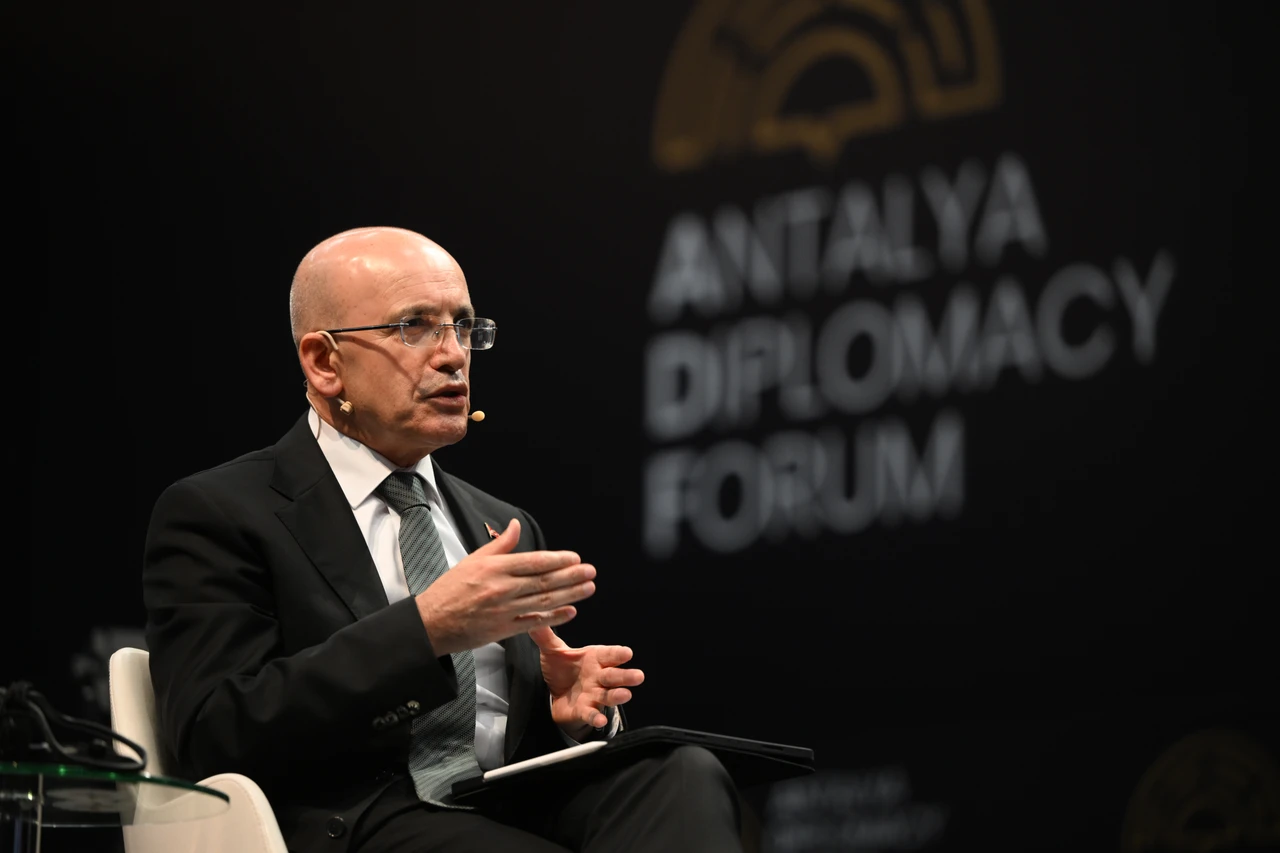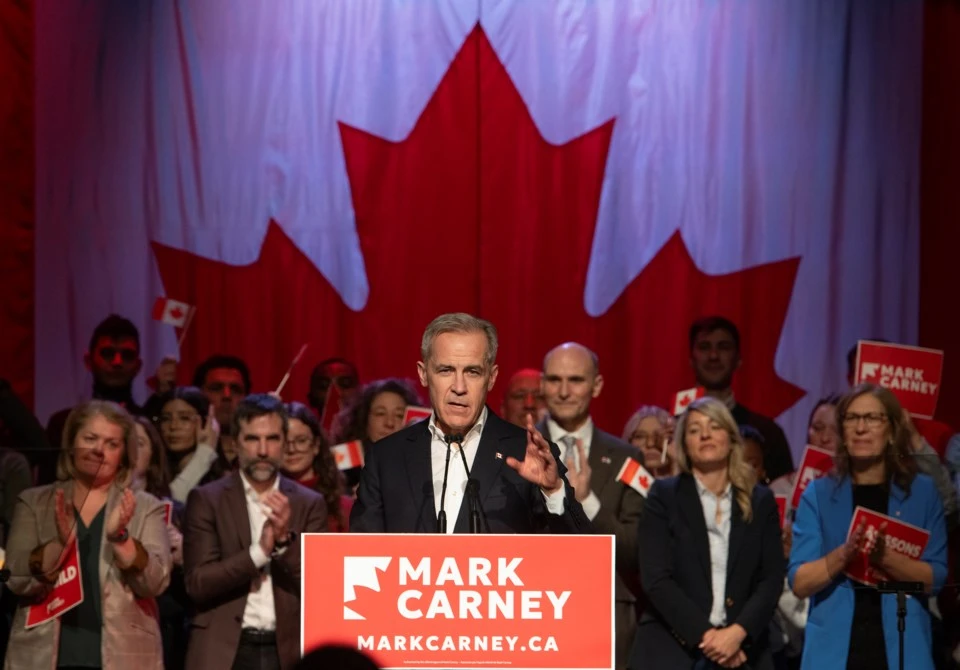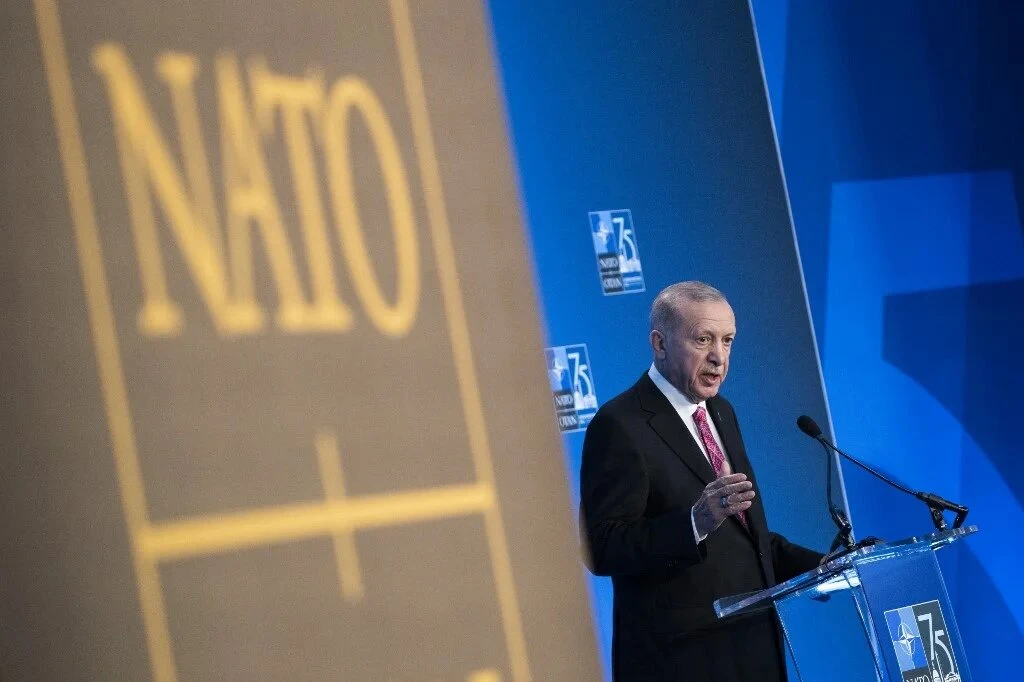Gaza crisis shows urgent need for new global system: Parliament Speaker
 Turkish Parliament Speaker Numan Kurtulmus speaks during the 150th General Assembly of the Inter-Parliamentary Union (IPU) at the International Convention Center in Tashken, Uzbekistan on April 06, 2025. (Turkish Grand National Assembly - Anadolu Agency)
Turkish Parliament Speaker Numan Kurtulmus speaks during the 150th General Assembly of the Inter-Parliamentary Union (IPU) at the International Convention Center in Tashken, Uzbekistan on April 06, 2025. (Turkish Grand National Assembly - Anadolu Agency)
Türkiye’s Parliament Speaker Numan Kurtulmus said Sunday that the ongoing war in Gaza alone is enough to prove the need for a new global political and economic order, criticizing the current international system as ineffective and unjust.
Speaking at the 150th General Assembly of the Inter-Parliamentary Union (IPU) in Tashkent, Kurtulmus stated, “Even if we leave aside all other global disasters and conflicts, the developments in Palestine clearly show the need for a new system, a new global political and economic architecture.”
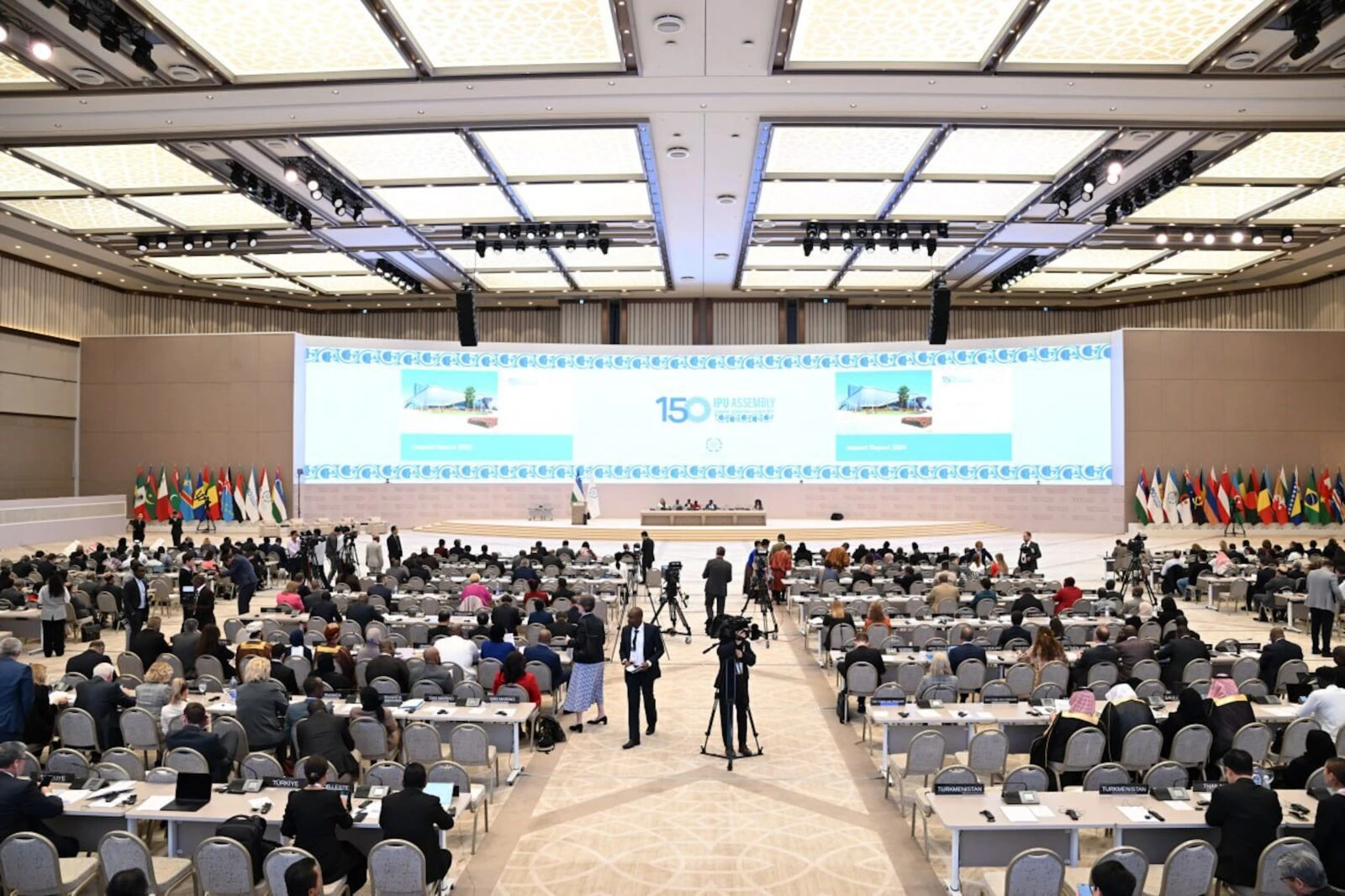
‘Democracy is shrinking in the shadow of digital control’
Kurtulmus warned that the world is facing increasing instability and injustice due to global economic imbalances, the misuse of technology, and failures in international governance.
He said parliaments must not remain silent in the face of these challenges.
“If law becomes a tool of privilege for certain groups, if the economy is seen only as a means to increase the profits of specific circles, and if politics turns into a mechanism to protect the interests of power centers, the balance of societies will collapse, states will weaken, and threats of global conflict will arise,” he said.
He also cautioned against the dominance of tech corporations and digital monopolies, noting that access to information is increasingly controlled by private interests.
“Technology, which is expected to increase human welfare, has turned into a tool for monopolization, market domination, and consumer dependency,” he said.
Kurtulmus added, “Algorithms have become the invisible hands guiding the thinking of societies, and unless we intervene, we are heading toward a world where the framework of democracy itself is narrowing.”

‘We must build a fair development model’
Addressing growing inequality worldwide, Kurtulmus noted that a vast portion of global wealth is concentrated in the hands of a small minority, while millions struggle to access basic services.
“Sustainable development is not possible if the lower segments of society do not receive a fair share of economic growth,” he said.
He underlined that parliaments and states have three main responsibilities: investing in education, developing social policies, and mobilizing all resources to establish a fair economic system.
“If young people do not have equal opportunities in education, economic development will inevitably stall in the medium and long term. If women are not included in the workforce, half of society is excluded from development,” Kurtulmus stated.
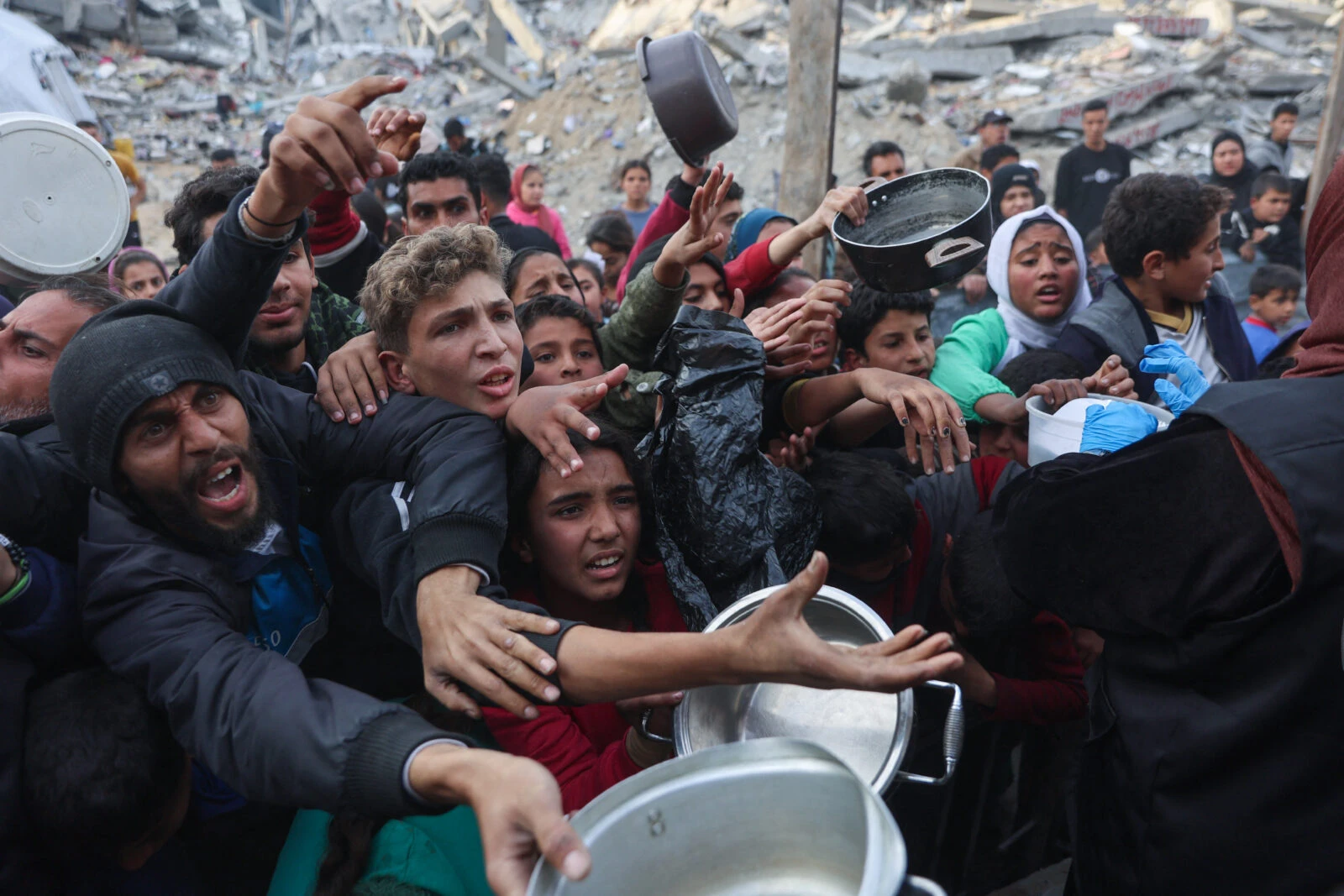
‘Parliaments must look beyond domestic politics’
Kurtulmus stressed that the responsibilities of parliaments are not limited to internal affairs.
“Parliaments do not deal only with domestic political issues,” he said. “They must also play a role in shaping peace, dialogue, and cooperation amid the shadows of diplomatic tensions and global power struggles.”
He argued that parliamentary diplomacy should be given greater emphasis and international cooperation should be used to solve cross-border problems.
“The solutions to today’s transnational issues can only come through transnational cooperation,” he said.
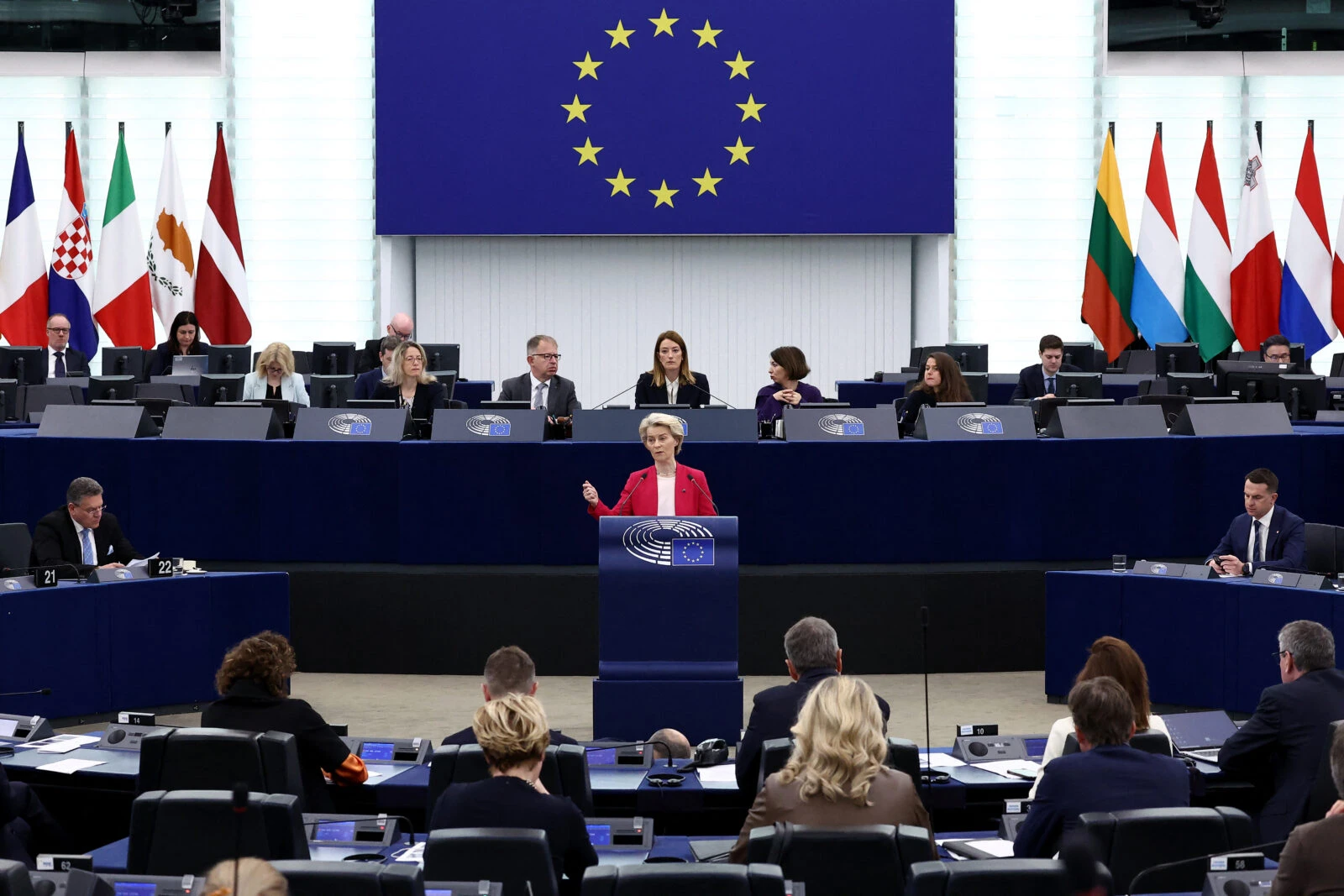
‘Global institutions have failed Gaza’
Referring directly to the war in Gaza, Kurtulmus stated that international institutions have failed to stop the killings of tens of thousands of civilians.
“For the past 1.5 years, we have been witnessing one of the largest massacres in human history in Gaza, where over 50,000 innocent people have been killed,” he said. “Unfortunately, none of the institutions of the global system have been able to stop, or even respond meaningfully, to this massacre, genocide, and crime against humanity.”
He continued, “The few voices raised are unfortunately weak and incapable of defending the rights of the innocent Palestinian people.”
Calling the situation a “test of global conscience and justice,” Kurtulmus said, “The developments in Palestine alone show the world’s desperate need for a new system.”
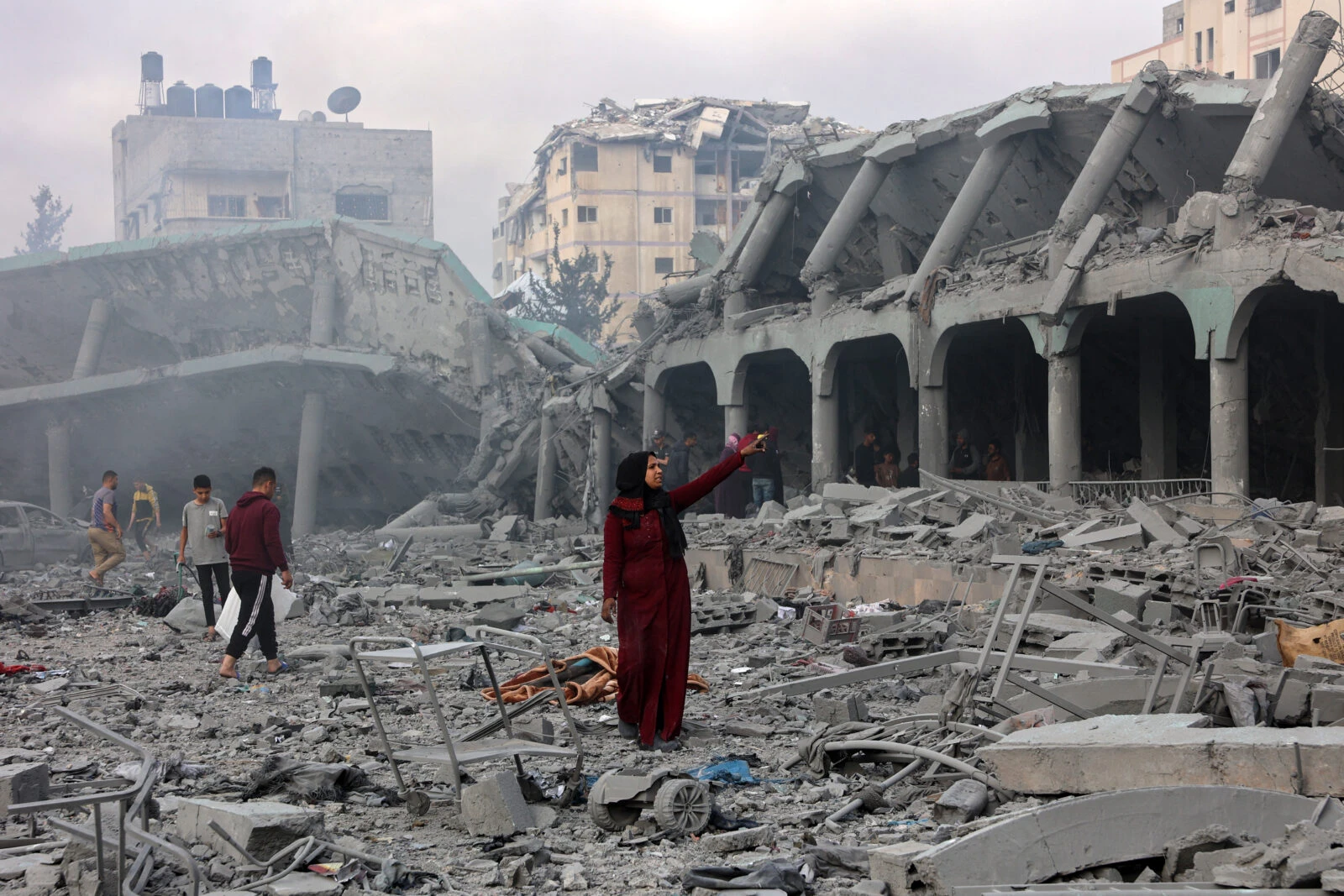
New social contract is urgently needed
Kurtulmus concluded his remarks with a call for collective action among global lawmakers.
“We invite all world parliaments to work together in building a new, fair, and just political and economic structure. What we achieve in this cause will be our greatest contribution to humanity,” he said.
“The world today needs a new social contract that goes beyond traditional political and economic paradigms,” he added.
“What we are going through shows clearly that the current methods, systems, and institutions are no longer able to solve the world’s problems.”

